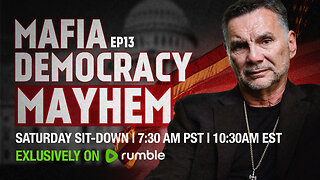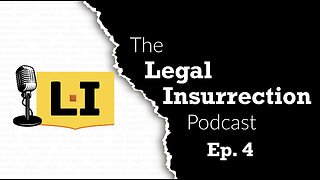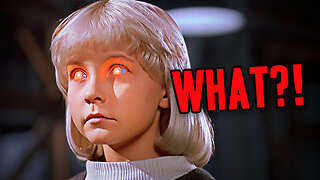1974 Interview of Carroll Quigley by Rudy Maxa for the Washington Post
Brought to you by supporters of TheDukeReport.com
Brought to you by supporters of TheDukeReport.com
In this compelling 1974 interview with Washington Post reporter Rudy Maxa, Dr. Carroll Quigley discusses his book “Tragedy and Hope,” a detailed exploration of the intricate network of power shaping modern history. Central to this network is the legacy of Cecil Rhodes and his Round Table group, deeply connected to the fellows of Oxford University’s All Souls College. Quigley, a professor at Georgetown University, meticulously outlines the roles played by elite groups in global events, emphasizing the influence of Rhodes’s Round Table in British Imperial and foreign policy.
Conclusion
Despite Quigley’s extensive research revealing a global conspiracy of elites, he resists being labeled a conspiracy theorist. His work highlights the real mechanisms of global power wielded by a select few, from banking elites to political leaders. Quigley’s book remains a seminal study in understanding global power structures. Throughout the interview, Quigley details his struggles with publishers and the impact of his revelations on public perception, while offering insights into the historical and contemporary implications of his findings.
Key Points
📘 Tragedy and Hope: Quigley’s book reveals the mechanisms of global power controlled by a select few.
🌐 Global Influence: He discusses the role of elite groups in shaping world events.
🏛️ Round Table: The Round Table group’s significant impact on British Imperial and foreign policy.
📚 Publishing Struggles: Challenges faced by Quigley in getting his work published and recognized.
🔍 Research Depth: Quigley’s meticulous investigation into historical power structures.
🤝 Connections: The link between Rhodes’s Round Table and Oxford University’s All Souls College.
📰 Public Perception: Quigley’s conflict with being labeled a conspiracy theorist despite his scholarly work.
📉 Civilization’s Decline: His views on the decline of Western civilization and skepticism about its future.
📑 Secret Societies: Exploration of the historical influence of secret societies on global events.
🕵️ Personal Insights: Quigley’s personal experiences and insights into the corridors of power and knowledge.
Summary
Introduction to Tragedy and Hope: Dr. Carroll Quigley discusses his book “Tragedy and Hope,” which details the global influence of elite groups on modern history.
Rhodes and the Round Table: The legacy of Cecil Rhodes and his Round Table group, connected to Oxford University’s All Souls College, is central to Quigley’s analysis.
Impact on British Policy: Quigley explains how the Round Table significantly shaped British Imperial and foreign policy in the early 20th century.
Research and Revelations: Quigley’s meticulous research reveals the intricate network of power controlled by elites, highlighting the real global conspiracy.
Challenges with Publishers: Quigley recounts his struggles in getting his work published, facing rejection and manipulation by publishers.
Civilization’s Decline: He expresses his skepticism about the future of Western civilization, viewing its decline as tragic and almost inevitable.
Secret Societies’ Influence: The interview delves into the historical influence of secret societies like the Round Table and their connections to modern power structures.
Personal Experiences: Quigley shares personal anecdotes about his career, including his experiences with publishers and public reactions to his work.
Public Perception and Labels: Despite his reluctance, Quigley is often labeled a conspiracy theorist, which he finds ironic given his scholarly approach.
Historical and Contemporary Context: The interview provides a comprehensive look at the historical and contemporary implications of Quigley’s research.
-
 1:05:33
1:05:33
Michael Franzese
17 hours agoWhy Biden dropped out, and Kamala’s agenda to destroy America | MF LIVE | EP 13
8.48K49 -
 LIVE
LIVE
MYLUNCHBREAK CHANNEL PAGE
23 hours agoOld World Underground Cities & Maps?
1,216 watching -
 LIVE
LIVE
Major League Fishing
2 days agoLIVE Tackle Warehouse Invitationals, Stop 6, Day 2
1,204 watching -
 LIVE
LIVE
Right Side Broadcasting Network
2 days agoLIVE REPLAY: President Trump Keynotes TPUSA Faith's Believers' Summit in West Palm Beach 7/26/24
5,974 watching -
 1:18:33
1:18:33
Dexerto League of Legends
1 day agoAre Fnatic REALLY Better Than G2? Is Jankos RETIRING? LEC Playoffs Review
24.6K9 -
 47:00
47:00
The Based Mother
19 hours ago $0.07 earnedThe Based Mother Ep. 12 - Evil Olympics | Obama-Harris | Agenda 47 Prescriptions | Alexandra Levine
23.8K54 -
 51:01
51:01
Legal Insurrection
17 hours agoWhat in the House of Cards is Going on with the Democrats?
28.6K32 -
 13:13
13:13
justintech
1 day agoiBUYPOWER Y40 Review - The most INSANE Deal I've Seen!
25.6K7 -
 1:00:02
1:00:02
Trumpet Daily
1 day ago $3.56 earnedNew Regime Narrative: Biden Is George Washington, Kamala Is Obama, and Trump Is Terrified - Trumpet Daily | July 26, 2024
34K25 -
 13:23
13:23
JoBlo Horror Originals
1 day agoWhat Happened To John Carpenter's Village of the Damned?
25.6K11